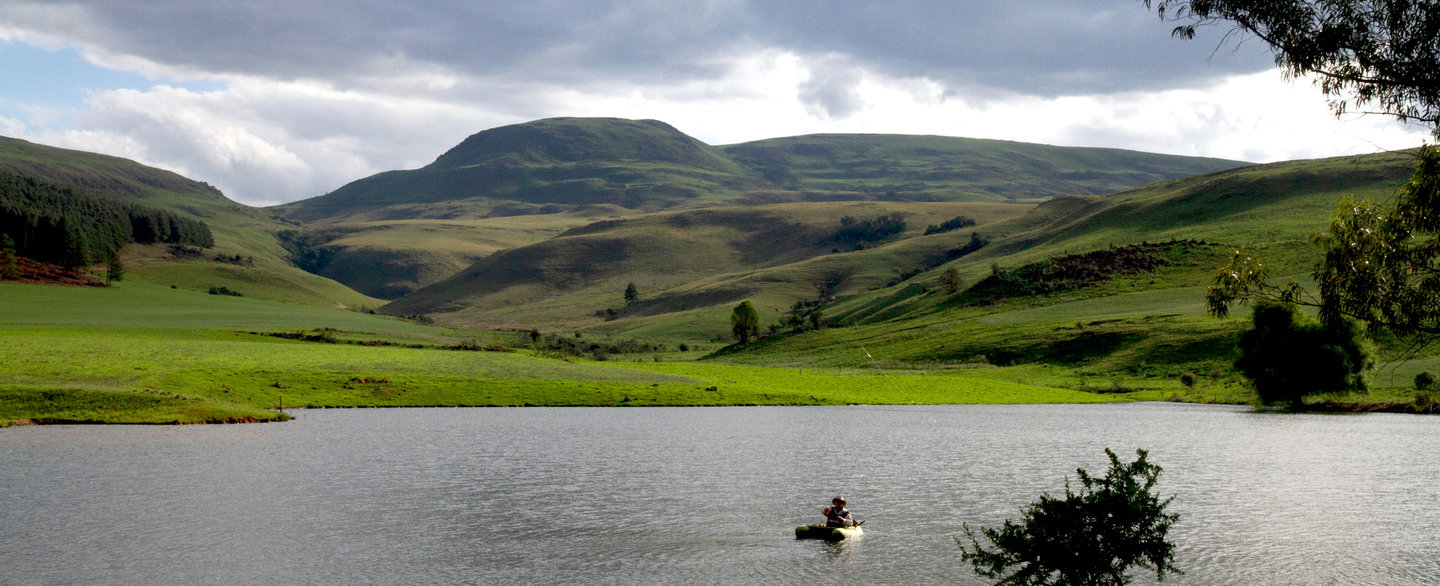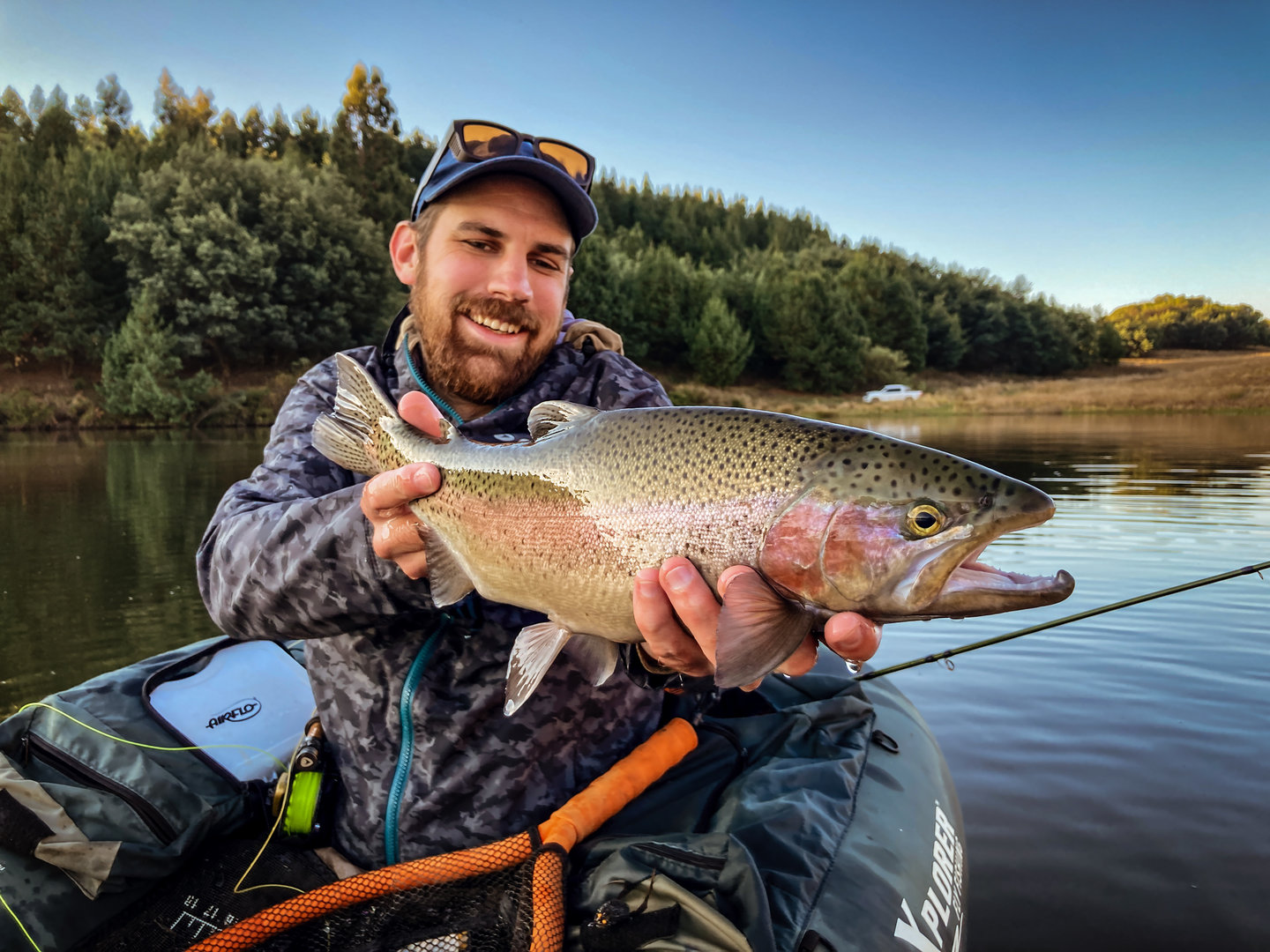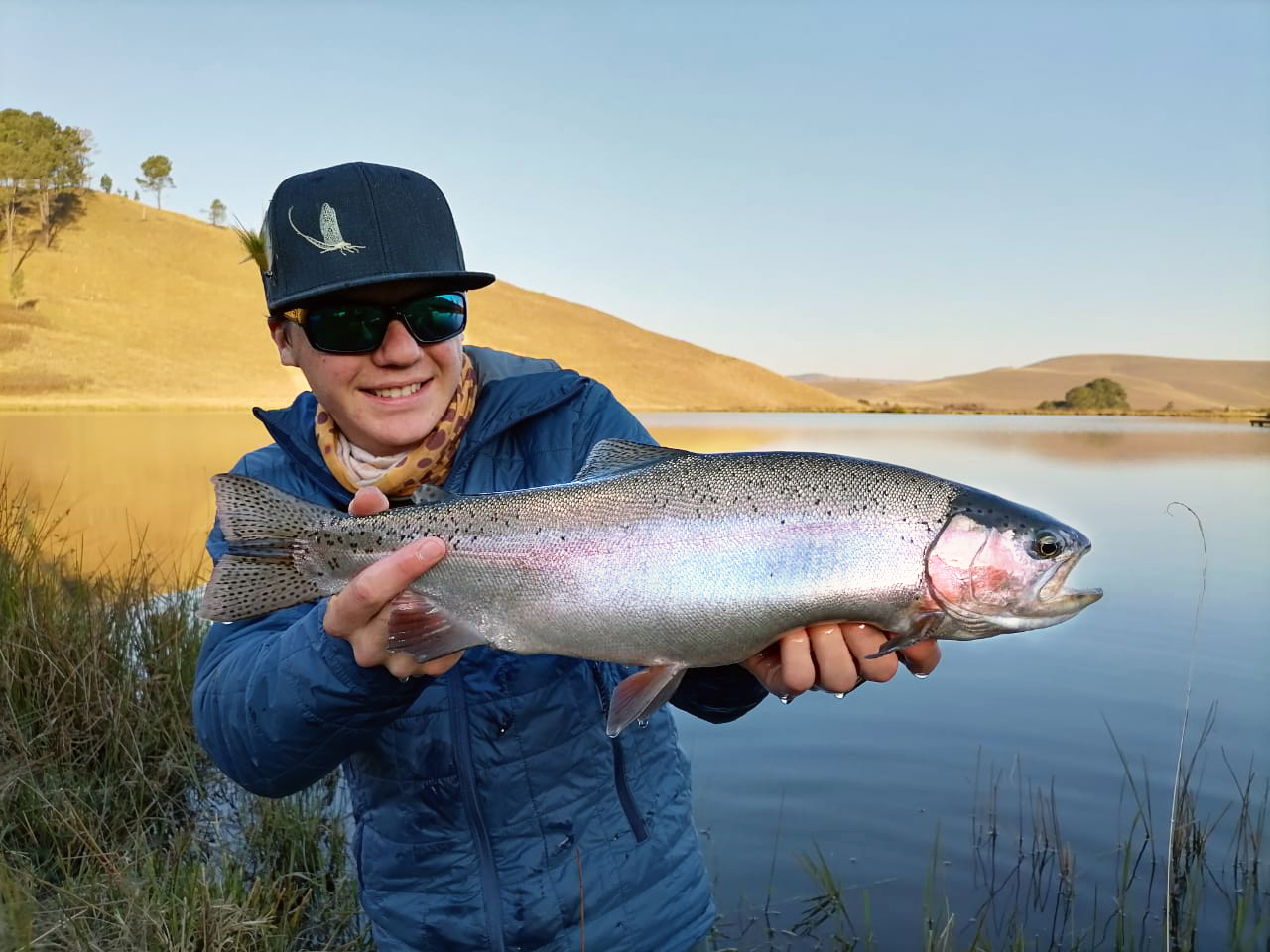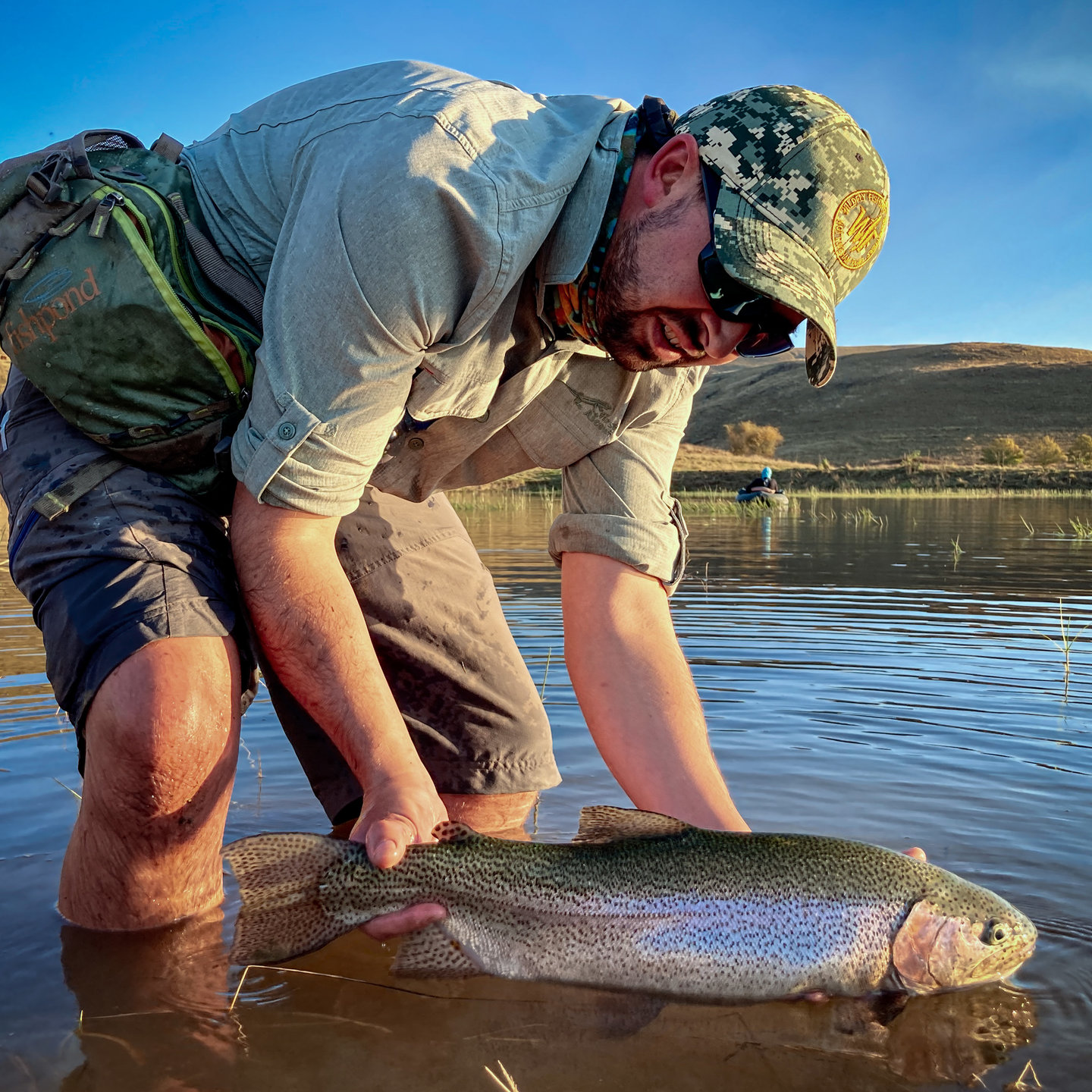
The Fly
Shrink

Decades of exercising patience at the dry end of a fishing rod while standing at the bank of rivers, dams, lakes and even in boats and float tubes has given Gareth George ample time to ponder his magnificent obsession.

How smart do you think fish really are?
I mean, it’s not as if they’ve managed to crawl out the water – yet we seem to spend an inordinate amount of time trying to figure them out.
There’s a lot to consider when throwing a fly at a fish and some might say a little too many variables when it comes to the temperamental movements of trout.
So what is real food for thought and what is just giving the dumb fish too much credit?
If you take the time to read just a fraction of what has been published over the decades, you’ll soon realise that there’s not too many startling secrets about catching trout on fly yet to discover, but on every outing there’s always a lesson to be learned.
In the fisherman’s bible of excuses we’ll blame everything from wind direction to the alignment of planets, for why we didn’t score. Some anglers however, just seem to possess floating four leafed clover on the water. What are they doing different?
I’ve been extremely fortunate to have thrown a line with some talented fly fishers over the years and observed their consistent, and to be honest, annoying habit of netting a brace irrespective of conditions, which begs the question why?
Firstly, by and large, they are organised. From the gear they bring down to the layout of their fly boxes. So before heading out on the next fishing expedition, prepare. You don’t have to have every toy, but you don’t want to arrive at the water without the right gear either.

ABOVE: Success at last! A good sized trout about to be released to fight another day.
Secondly, they always put the time in! I’m a self-confessed social fly fisher, but when it’s time to dabble, I make my time on the water count. We all know that the more one practices the luckier one gets, so make sure the time you spend is fishing and not unravelling bird’s nests. Polish up on your knots, rigs and even get your casting arm well oiled on the front lawn. Time on the water should be productive.
Third, they have a plan before launching. Instead of drifting around aimlessly hoping to bump into a trout, scope out the water and decide where to concentrate your efforts. Inlets, outlets, structure and weed beds will be your focal points with consideration for time of day and depth at which you’ll retrieve. On Fishtube, you’ll find a little free tutorial that’ll steer you in the right direction, https://fishtube.tv/channels/finding-trout/.

ABOVE: When all the factors combine: gear and fly selection, good cast and fly presentation, trout can’t help but be tempted!
Then they fish with the right fly. (Ask them which one and you’ll get a multitude of different patterns …) That’s because we’ve invented more flies than the food they feed on. So establish whether the fish are feeding or procreating. If the latter then spawning fish will naturally attack colour more than pattern, so your disco imitations should get more attention. If feeding, then remember when fishing in the colder months, insect hatches are a lot smaller so the fly size is a major factor. Ultimately, trout rarely completely stop feeding, even when chasing tail.
They know how to fish their fly of choice. Stripping a little Zak nymph at the same pace as a Zonker just doesn’t make any sense. Knowing how to work that specific fly through the water in terms of the depth and retrieval method or speed is key.

ABOVE: Sometimes you just have to get your feet wet .
The penultimate point is patience. They know it’s only a matter of time. You gotta have faith in what you’re doing. Second guessing your strategy and tactics will have you paddling around the dam creating wake that will spoil any potential action. The more time you spend casting and changing fly the less time your pattern is in the strike zone. So slow it all down, keep your fly in the water longer and be confident that the fish will eventually bite.
And finally, they enjoy every moment on the water, some due to their competitive streak, but most great anglers I’ve met treat a piece of water like holy ground. It is their sanctuary, where they can relax and the only thing occupying their thoughts is the fish. There’s no real pressure, nothing at stake, just the mystery of what will induce a strike to unravel, which really is a fisherman's process. So remember, above all, that fishing is a pastime, not a profession.
We all think it’s all in the fly, but actually, it’s all in your head. Be prepared, have a plan, be patient and appreciate the moment.
BACK TO TOP